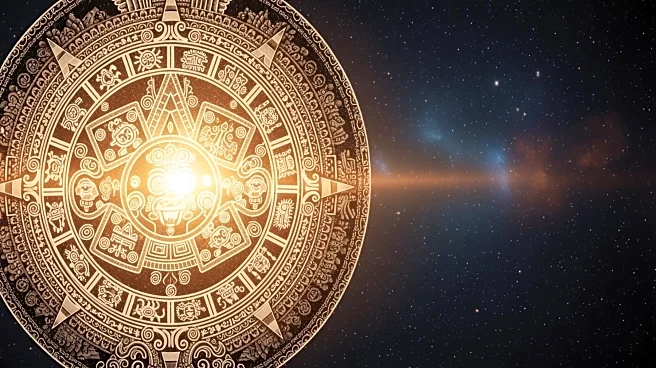What's Happening?
Recent research has provided new insights into the Mayan civilization's ability to predict solar eclipses with remarkable accuracy. The study, published in Science Advances, focuses on the Dresden Codex,
a significant record of Mayan astronomy. Researchers have discovered that the eclipse prediction table, previously thought to be solely for predicting eclipses, was initially designed as a lunar calendar aligned with the Maya's 260-day astrological calendar. The 405-month cycle's length of 11,960 days aligns more closely with the 260-day calendar than with solar and lunar eclipse cycles. The Mayans maintained accurate predictions for over 700 years by using overlapping tables, resetting the next table to precise internals before the previous table ended to correct for astronomical errors.
Why It's Important?
The findings highlight the advanced astronomical knowledge of the Mayan civilization, demonstrating their sophisticated understanding of celestial events. This research not only sheds light on historical scientific achievements but also challenges previous assumptions about ancient methodologies. The ability to predict eclipses accurately has implications for understanding the development of early scientific thought and the cultural significance of astronomy in ancient societies. It underscores the importance of preserving historical records and the potential insights they can offer into past civilizations.
What's Next?
Further research may explore other aspects of Mayan astronomy and mathematics, potentially uncovering more about their methods and applications. Scholars might investigate how these findings can inform modern astronomical practices or contribute to the broader understanding of ancient scientific knowledge. Additionally, there may be interest in examining other historical records to compare methodologies across different civilizations.
Beyond the Headlines
The study raises questions about the ethical considerations of interpreting ancient texts and the responsibility of modern researchers to accurately represent historical knowledge. It also highlights the cultural significance of astronomy in shaping societal beliefs and practices, offering a deeper understanding of how ancient civilizations viewed their place in the universe.









